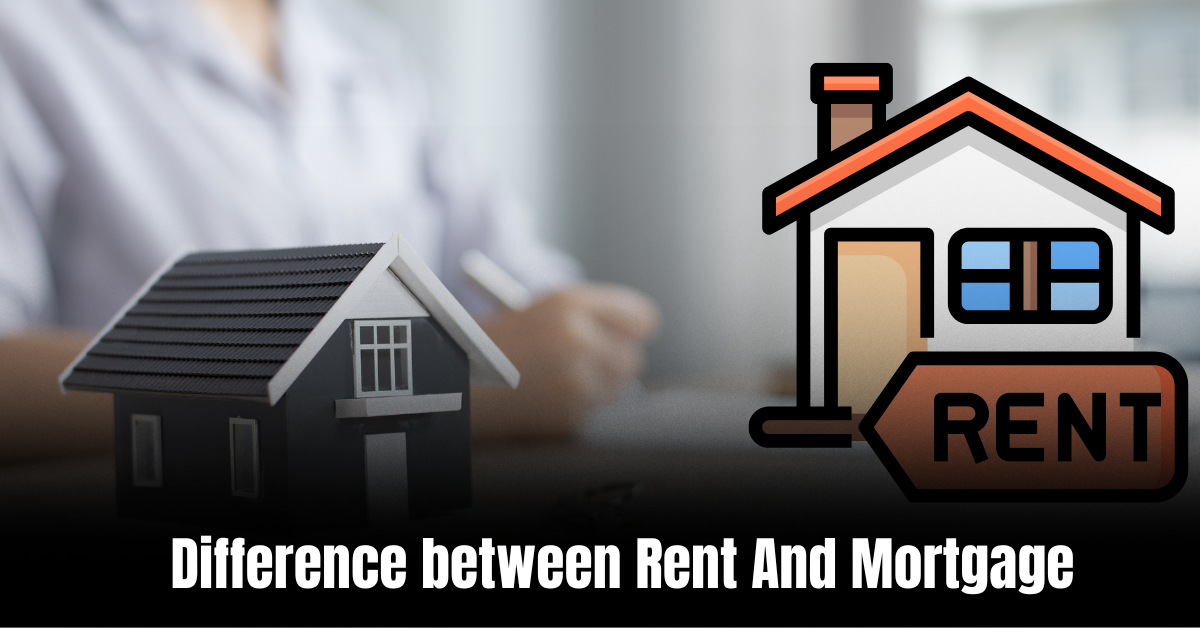When it comes to housing, there are various options available, with renting and buying a home being the most common choices. Understanding the difference between rent and mortgage is crucial before deciding which path to take. Let’s explore the contrasting aspects of these two options.
Rent
Rent refers to the amount of money one pays to live in a property owned by someone else. It involves signing a lease agreement with the landlord, typically for a fixed term, such as one year. Here are some key points to consider about renting:
| Pros of Renting | Cons of Renting |
|---|---|
|
|
Renting can be a suitable option for people who prefer flexibility and don’t want the burden of property ownership. However, it does not offer the potential financial benefits associated with owning a home.
Mortgage
A mortgage, on the other hand, is a loan taken out to finance the purchase of a property. The borrower agrees to repay the loan amount, plus interest, over a specified period of time, typically ranging from 15 to 30 years. Let’s delve into the advantages and disadvantages of having a mortgage:
| Pros of Mortgage | Cons of Mortgage |
|---|---|
|
|
With a mortgage, you have the advantage of owning a property and the potential to build equity over time. While homeownership comes with added responsibilities, it offers stability and the opportunity to create a long-term investment.
Key Differences
Now that we have explored the pros and cons of renting and having a mortgage, let’s highlight the key differences between the two:
- Ownership: Renting means you don’t own the property, while a mortgage grants you full ownership once the loan is repaid.
- Financial Implications: Renting offers no potential for wealth accumulation, whereas owning a home allows you to build equity and potentially benefit from property value appreciation.
- Flexibility: Renting provides flexibility, as you can easily move out at the end of your lease. Homeownership requires a greater commitment and may involve selling the property if you wish to relocate.
- Responsibility: Renting means the landlord is responsible for property repairs and maintenance, while homeownership requires you to handle these tasks or hire professionals.
- Monthly Payments: Rent payments are typically fixed during the tenancy period, while mortgage payments may vary depending on the loan terms, interest rates, and possible refinancing.
Which Option Is Best for You?
The choice between renting and obtaining a mortgage depends on your personal preferences, financial situation, and long-term goals. Renting can be suitable for those seeking flexibility and minimal responsibilities, while a mortgage appeals to individuals aiming to invest and build equity over time.
It is advisable to consult with financial advisors or real estate professionals to understand the implications of renting versus having a mortgage based on your specific circumstances. They can guide you towards the most suitable choice.
Frequently Asked Questions Of Difference Between Rent And Mortgage: Key Distinctions Unveiled
Faq 1: What Is The Difference Between Rent And Mortgage?
Rent and mortgage are two different forms of housing payments. Rent refers to the payment made to a landlord for the use of their property, while a mortgage is a loan to purchase a property.
Faq 2: How Does Renting Work?
Renting allows you to live in a property owned by someone else. You pay a predetermined amount of money, typically on a monthly basis, to the landlord, who is responsible for maintaining and repairing the property.
Faq 3: What Are The Advantages Of Renting?
Renting offers flexibility, as you can easily move to a different location without the burden of selling a property. Landlords also handle maintenance and repairs, relieving you of that responsibility.
Faq 4: What Are The Disadvantages Of Renting?
Renting means you don’t build equity in a property, and your monthly rent payments do not contribute towards ownership. Also, landlords may have certain restrictions on modifications or pets.
Conclusion
In summary, renting and having a mortgage are two different approaches to fulfilling the need for housing. Renting offers flexibility and minimal responsibilities, but it lacks potential financial benefits. On the contrary, a mortgage allows you to build equity and offers stability, despite requiring more commitment and responsibilities. The decision ultimately relies on your personal needs and long-term goals. Assess your financial situation and consult professionals to make an informed choice.
Ismail Hossain is the founder of Law Advised. He is an Divorce, Separation, marriage lawyer. Follow him.





Leave a Reply